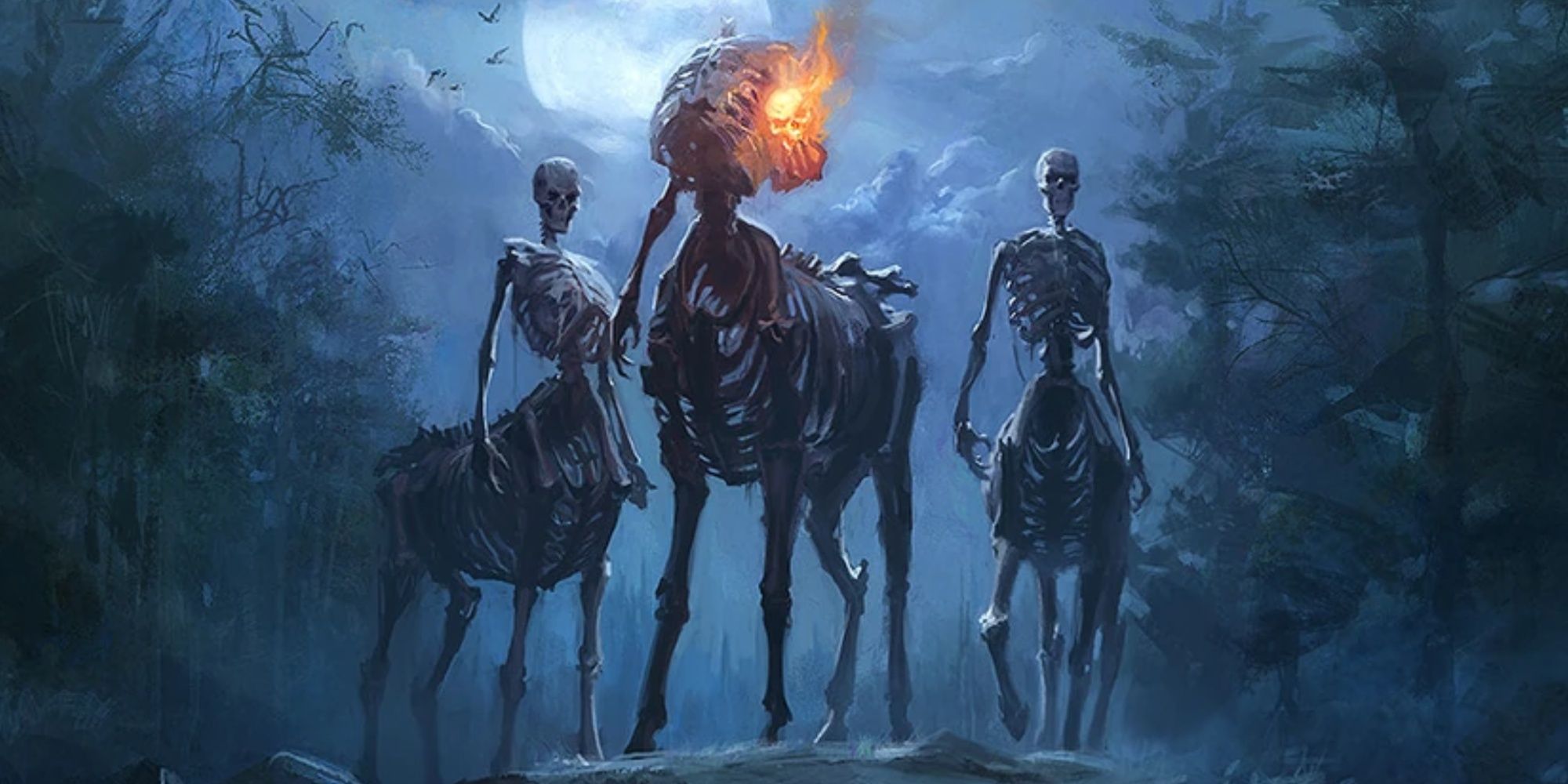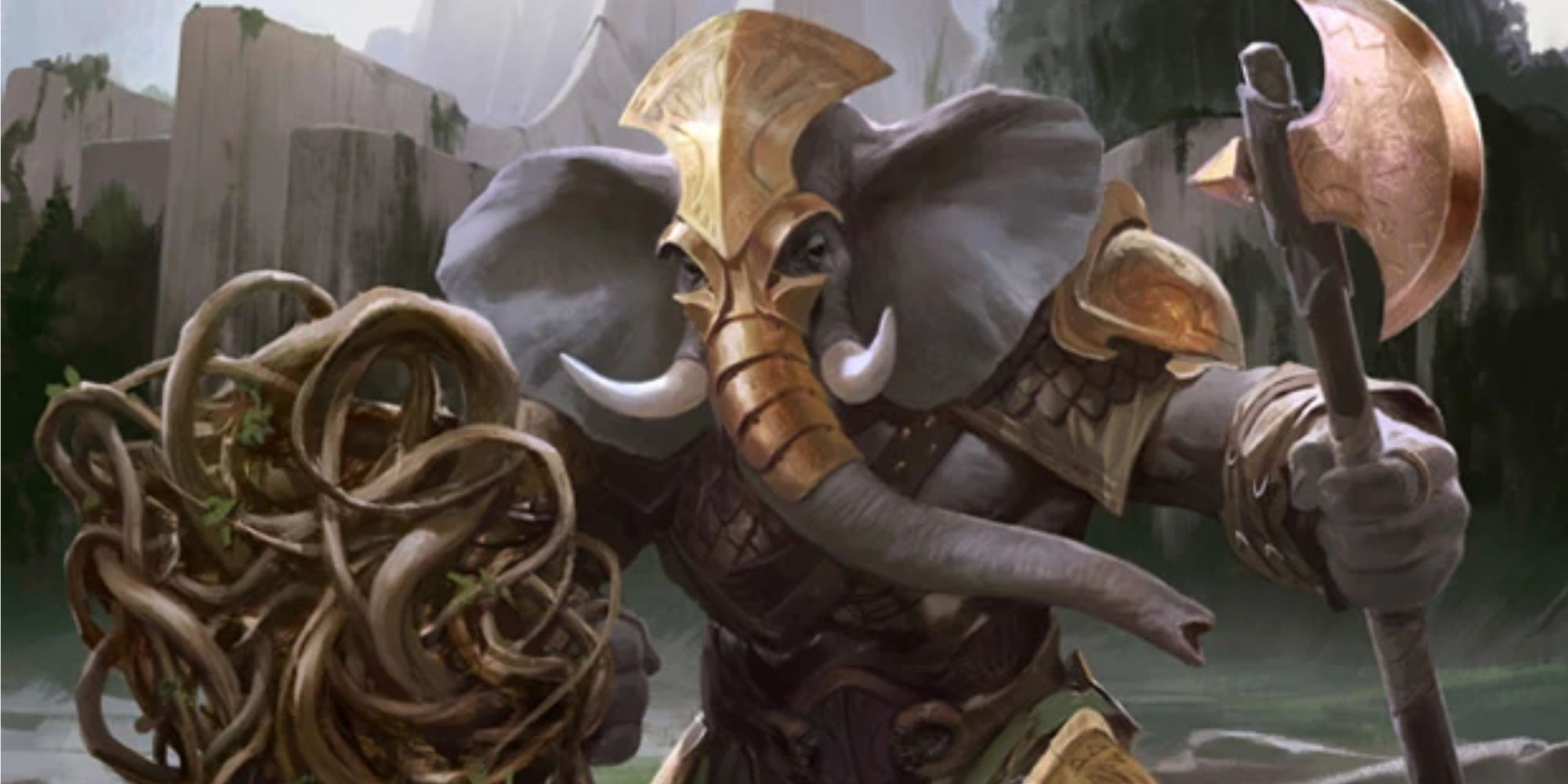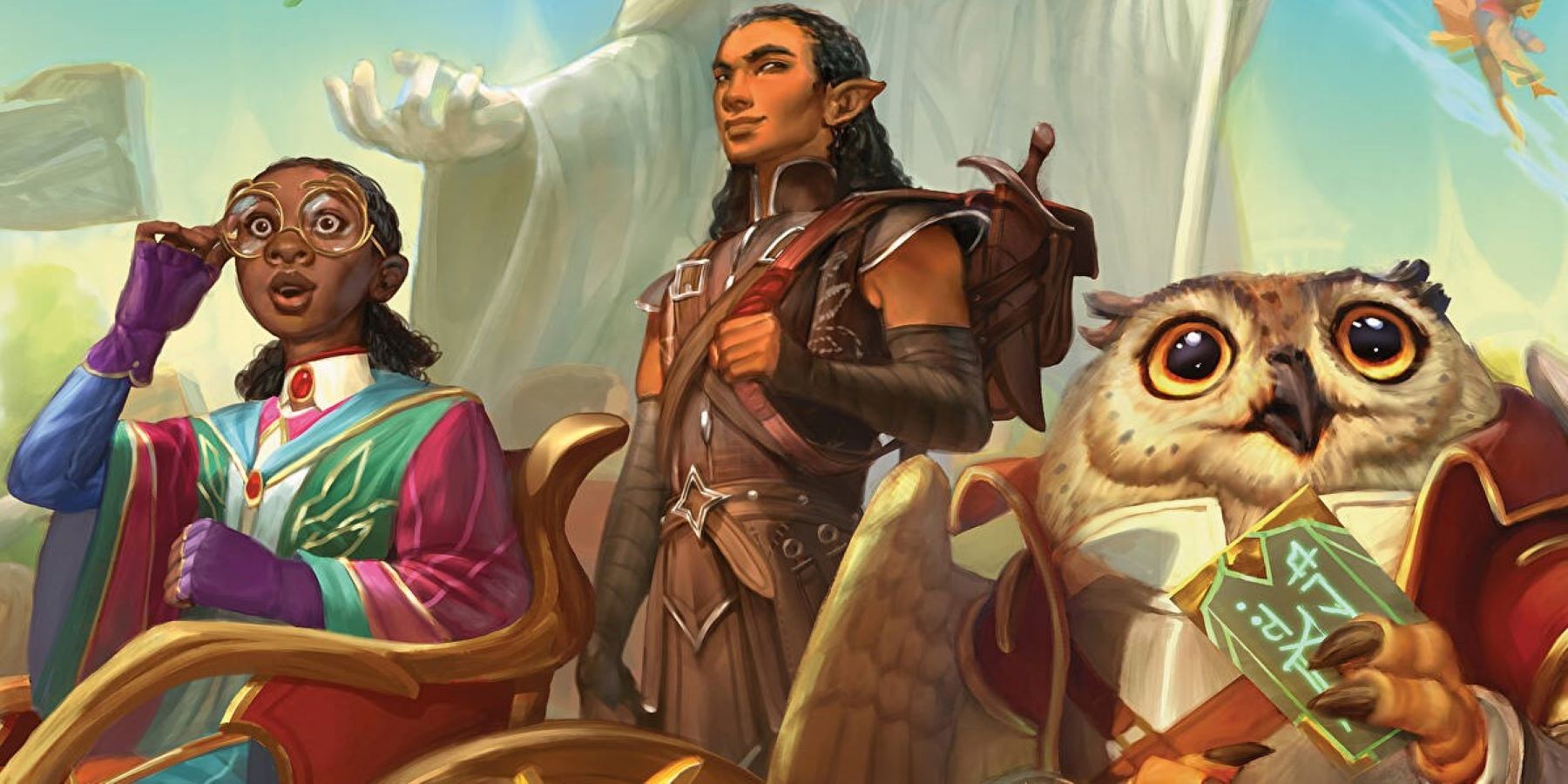When a player is ready to take on the power of nature with a new Dungeons & Dragons character, then it's time to explore the formula for creating the best possible Druid build in D&D 5th edition. Druids venerate and protect nature in any and every environment, from scorching deserts to lush forests and deep underground caverns.
Druids haven't always had a stellar reputation as a powerful and fun class in previous editions, but 5th edition Druids are versatile healers, fighters, and spellcasters with consistently high levels of power across pretty much all levels. It's hard to go wrong playing as a Druid, but the class still needs a few pointers to maximize their effectiveness in any role. Druids also have a lot going for them when it comes to backstory and role-playing options, depending on other factors like their unique skills and backgrounds.
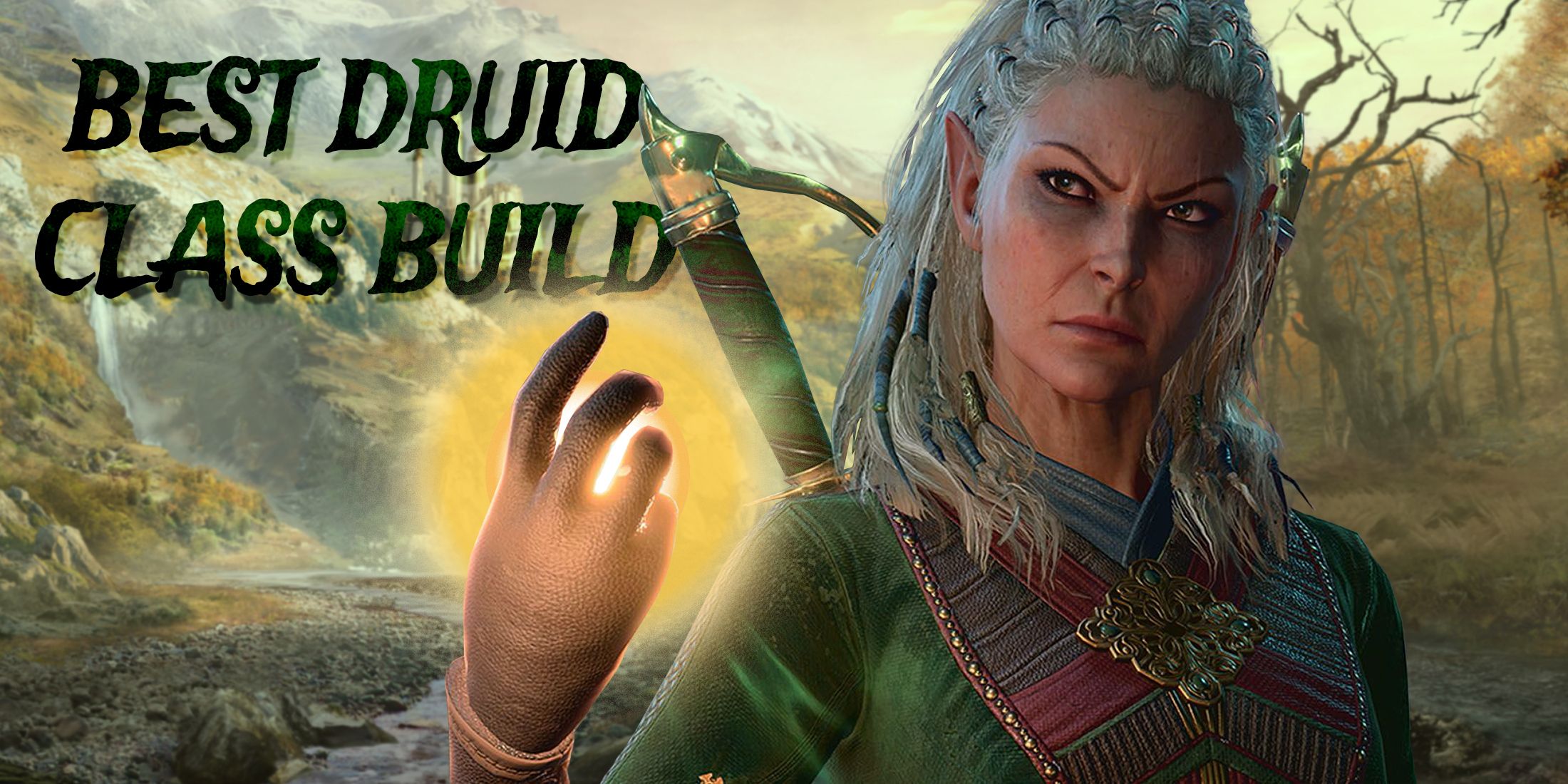
Baldur's Gate 3: Best Druid Class Build
The Druid class in BG3 can shapeshift into different animals, and the Circle of the Moon Druid build amps up Wild Shape's damage and party utility.
Updated May 16th, 2024, by Kristy Ambrose: The Druid has a reputation throughout the RPG world as a versatile class, a tradition that continues in modern D&D. Some major changes to the function of the unique skills of various species mean that it's not all about choosing the one with the highest Wisdom modifier. Constitution and Intelligence are also important for the best Druid build, and the Skills and Feats chosen also complement the class.
A simple change like another set of gear can change a Druid's role in the party. Shapeshifting, elemental control, and other abilities related to survival, tracking, or life in the wild are all more important factors to consider for the best Druid build in D&D 5e. Any creature that can control or manipulate the elements is ideal for a Druid. Their most important stats are Wisdom for spellcasting, and fighting builds often include a high Dexterity score.
Best Druid Species
For the core species that appear in the Players Handbook (PHB), the old rules still apply when it comes to choosing a Druid. For species in the supplemental materials, it's more about Backgrounds, unique abilities, and party roles. Although stats still have a major role in building a character, they aren't affected by racial factors anymore. Different rules apply to any species outside of the D&D PHB.
Species | Source | Description |
|---|---|---|
Wood Elves | Player Handbook | A variant of the Elf, they have a +2 bonus to Dexterity and +1 to Wisdom, increased movement speed, and the Mask of the Wild ability. It remains one of the best choices for a Druid in 5e. |
Fairy | The Wild Beyond The Witchlight | This is one of the best classes for a spellcasting Druid that focuses on DPS, partly because of the power of flight but also thanks to spells like Faerie Fire. It's also an ideal choice for a support or off-healing build. |
Lotusden Halfling | Explorer's Guide to Wildmount | One of the Halfling subraces, they get a +1 to Wisdom and Druid-like powers. These include Timberwalk and spells like Entangle and Spike Growth. |
Water Genasi | Elemental Evil Player's Companion | This species can breathe underwater, has acid resistance, and two free spells, including the Acid Splash cantrip. These Druids control water and have an aquatic form, including the ability to breathe air and water. |
Winged Tiefling | Sword Coast Adventurer's Guide | As the name suggests, this Tiefling has the power of flight, along with some resistance to fire and some related burning cantrips. For players that want to start their Druid build with a Tiefling, this is the best choice in D&D 5e. |
High Elf | Player Handbook | This species knows the cantrip Burning Blade, which works very well with any casting build. One example is the Circle of Spores because it increases the spell's melee damage into an AoE nightmare. |
Harengon | The Wild Beyond The Witchlight | Better Perception and Insight skills, along with handy abilities that include Lucky Footwork and Rabbit Hop when better mobility for casting or healing is required. |
Ghostwise Halfling | Sword Coast Adventurer's Guide | This race has the same skill boosts as Wood Elves and gains limited telepathy, in addition to the usual bonuses of the Halfling Lineage. |
Variant Human | Player Handbook | Inspired by the most versatile race in D&D, Variant Humans can choose their ability score boosts and a starting Feat. |
Firbolg | Volo's Guide to Monsters | An exotic race, they have two innate abilities ideal for the best Druid build: Disguise Self and Detect Magic. |
Owlin | Strixhaven: A Curriculum of Chaos | The power of flight is the best advantage here, and the exotic Owlin also has Darkvision and can choose any stat to buff up by 2 points. |
Kenku | Volo's Guide to Monsters | This mysterious race is a challenge to roleplay but is growing in popularity. +1 Wisdom and +2 to Dexterity can have several applications and start one of the best possible Druid builds in 5e. |
Mountain Dwarf | Player Handbook | One of the branches of Dwarves is currently available in the PHB, and it's the only one that gives the character a +2 to any stat they choose. Wisdom is the obvious choice but Constitution is also ideal. |
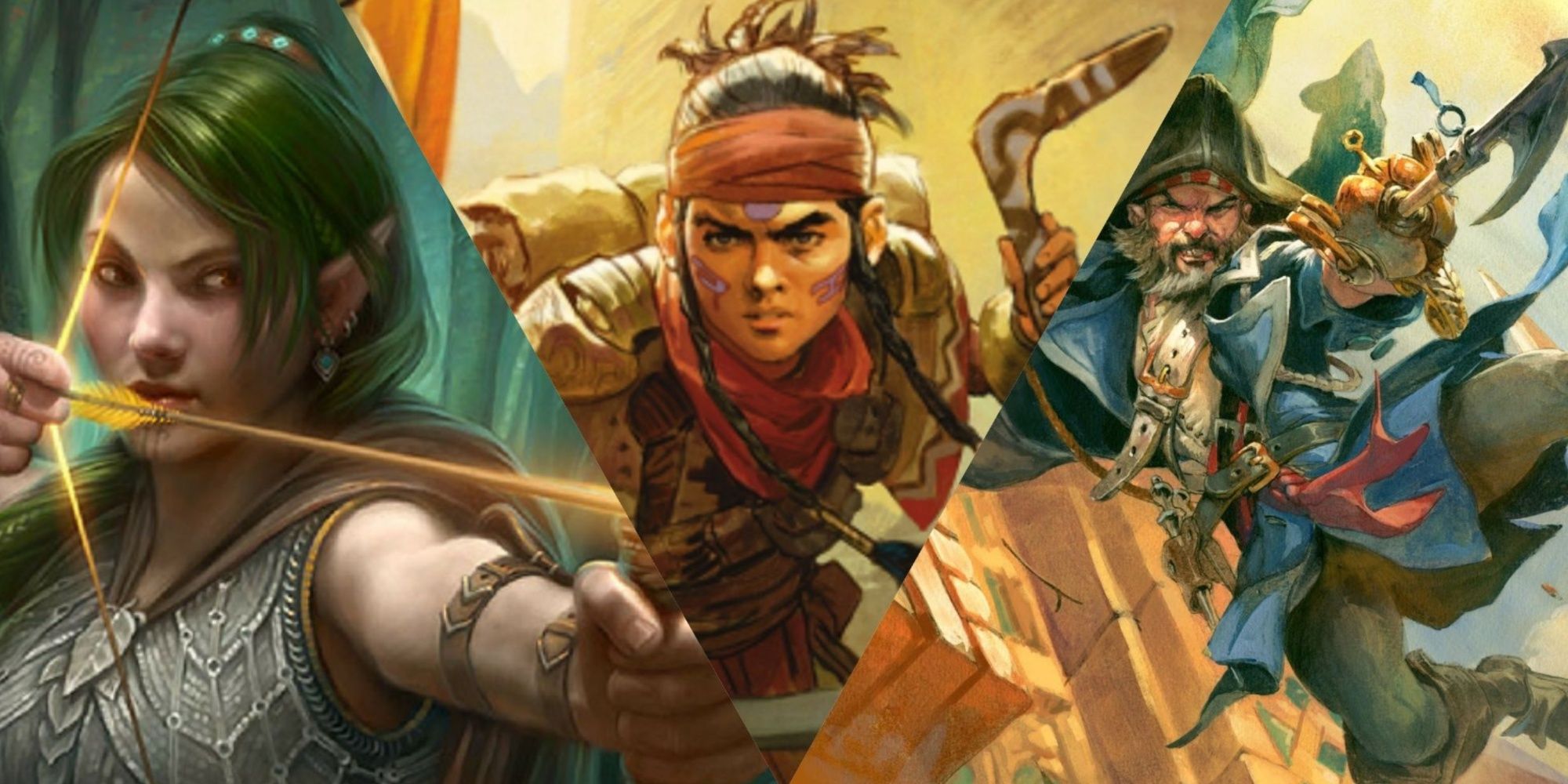
D&D: Best Simple Ranged Weapons
Those looking to dish out damage from a distance in Dungeons & Dragons can't go wrong with these simple ranged weapons.
Ability Scores
Despite the lack of racial modifiers, there are still ability scores to contend with as the character progresses. Druids don't have a "dump stat" thanks to the versatility of the class, but some ability scores are more important than others, while others are essential and a few are optional.
Stat | Benefit | Druid Skill |
|---|---|---|
Wisdom | Perception and Insight | Powers a Druid's spells, so this should be the highest number out of all the ability scores. |
Dexterity | Agility | A benefit to AC, but more important for a melee Druid. |
Constitution | Endurance | A basic survivalist skill, this might be a higher priority than Dexterity depending on the party role. |
Intelligence | Reasoning, Memory | Skills like Nature, Arcana, and Religion are determined by this stat. More important to Druids who are spellcasters and healers. |
Charisma | Personality | Druids who use healing spells or act as the face of the party can make this stat a higher one. |
Strength | Physical power and melee weapon damage | Some Druids specialize in melee damage and this stat is more important for them. |
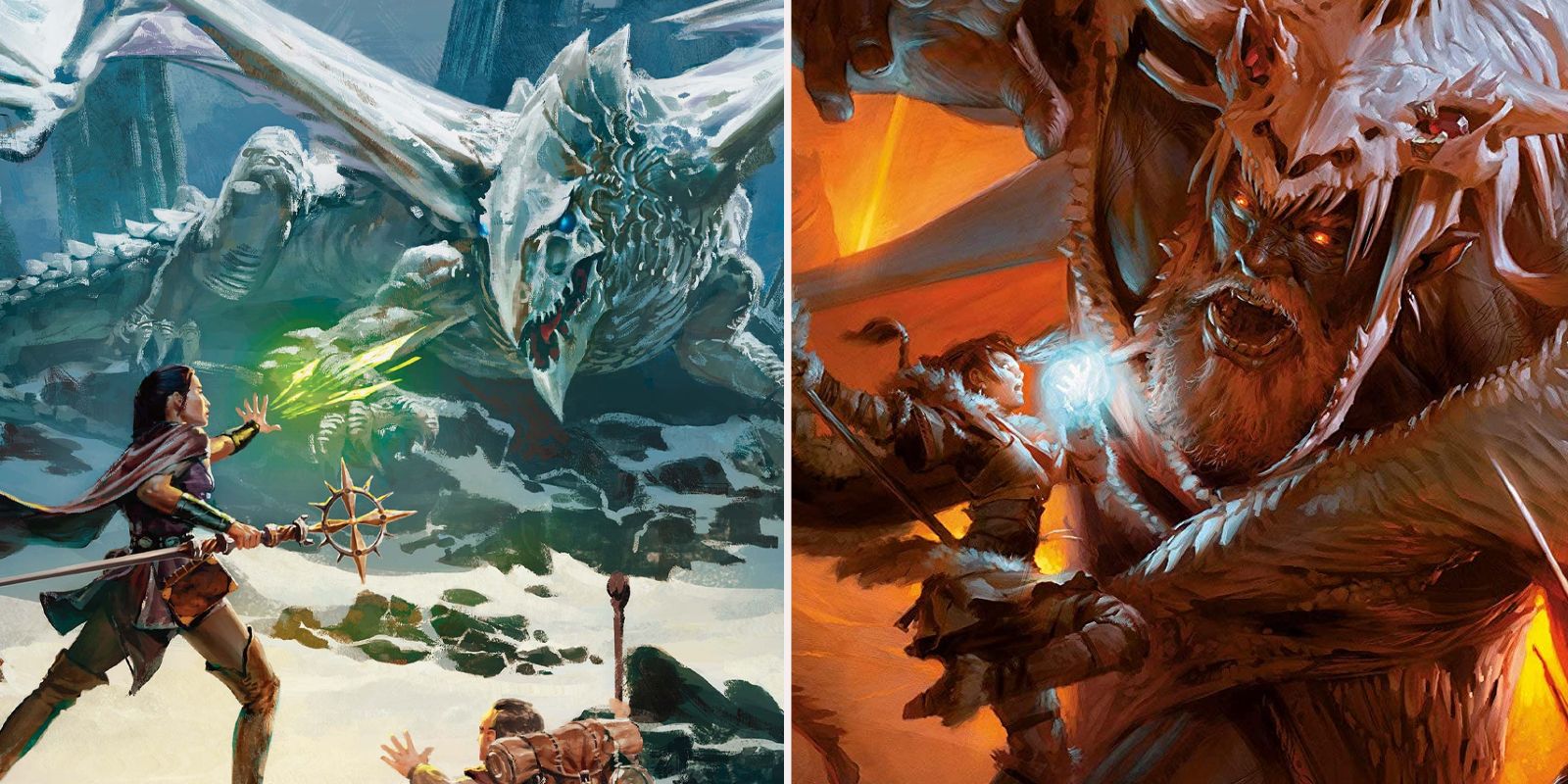
The 30 Most Useful D&D 5e Spells Players Should Have
Here are some helpful Dungeons & Dragons 5e spells that any magic-using player should make use of during their adventures.
Druid Circles
The following Druidic Circles serve as subclasses and determine your Druid's specific talents and powers. Some subclasses have to be purchased separately in different D&D sourcebooks.
Name | Description |
|---|---|
Circle of Dreams | Found in Xanathar's Guide to Everything, an ideal choice for Druids who prefer healing. |
Circle of Wildfire | Uses fire damage in its powerful array of spells and has a Fire Spirit companion. |
Circle of Stars | Found in Tasha's Cauldron of Everything, is a nice combination of healing and damage spells. |
Circle of the Blighted | An entry from the Tal'Dorei Campaign Setting Reborn module, this Druid build focuses on the power of corruption in the form of fungus, rot, and carrion feeders. |
Circle of the Land | For the classic spellcasting Druid, your powers are determined by the kind of landform the player chooses: Arctic, Swamp, Mountain, Underdark, Grassland, or Forest. |
Circle of the Moon | Summon fire elementals and use the Wild Shape ability as a combat form, allowing the Druid to act as the party's main Defender. |
Circle of Spores includes | Includes offensive abilities like necromancy and raising undead. At higher levels, Spore Druids gain a whole host of AoE spells for damage and protecting their party. |
Circle of the Shepherd | This is the Circle to choose for a Druid that surrounds themselves with animal companions. |

D&D: 12 Fun One-Shot Ideas
While long, detailed Dungeons & Dragons campaigns are a blast, sometimes it's nice to wrap up a plot in session, and these one-offs provide just that.
Skills
Every class and build focuses on a set of skills and abilities. These are what determine your dice roll bonuses, advantages, or disadvantages.
- Perception: Wisdom-based. This is easily the most-rolled skill in any D&D campaign, and Druids have high Wisdom anyway, so this is a natural pick.
- Arcana: Intelligence-based. Arcana makes it easier for a character to remember information about spells, magical items, and arcane traditions.
- Survival: It fits well with the nature of the class, being Wisdom-based, but how useful it is might depend on the campaign setting.
- Nature: Intelligence-based. The character remembers information about terrain, tracking, animals, and plant life.
- Insight: Wisdom based. A Druid's high Wisdom score means they have a better chance of determining a creature's true intentions.
- Religion. Intelligence-based. Makes it easier to remember information about deities, cults, and anything related to religion.
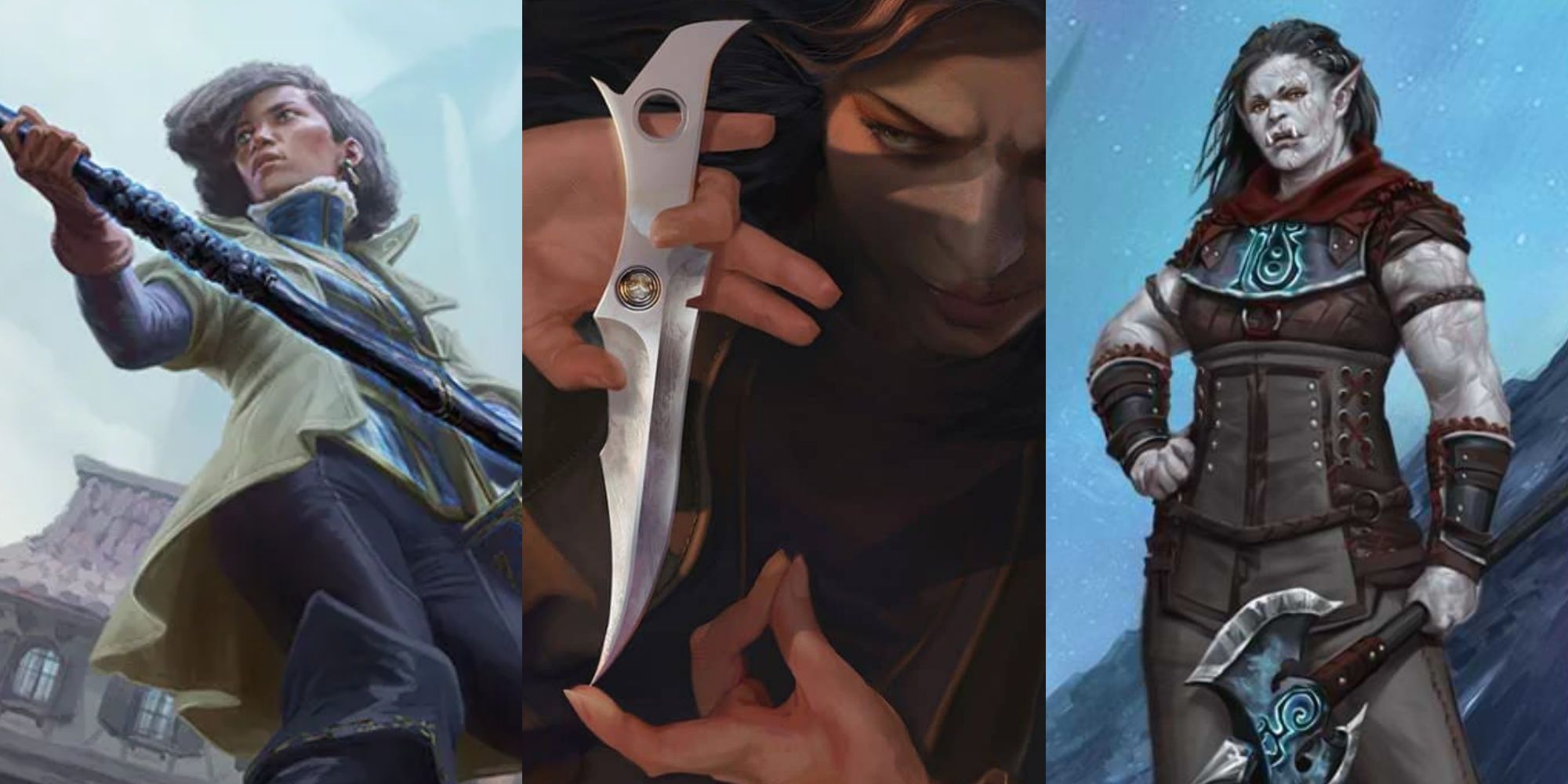
D&D: Best Simple Melee Weapons
Not all weapons were made equal in the world of D&D. These are the best of the best when it comes to simple melee weapons.
Feats
Feats are extra, miscellaneous abilities that a character can use to complement their build. These kinds of finishing touches determine the player's role and their behavior.
Name | Description |
|---|---|
Chef | Every party needs a cook anyway, and this adds +1 to the character's Wisdom score. |
Fey Touched | Grants the Druid a handy spell called Misty Step, which isn't normally in the Druid's spell cache but suits the class. |
Elemental Adept | Some extra fire spells are useful to any Druid and even more useful to those of the Circle of Land. |
Mobile | Speed increases by 10 ft. The character can Dash on difficult terrain and doesn't provoke opportunity attacks in melee. Also applies while in Wild Shape form. |
Observant | Gives a boost to the Druid's Wisdom and passive Perception, so one of the most important pieces of the best 5e Druid build. |
Telepathic | Use this to add +1 to Wisdom and gain the ability to read thoughts and communicate with any other creature in a 60-foot radius. |
Shadow Touched | Increases any one of the following stats; Intelligence, Wisdom, or Charisma, gives the ability to cast Invisibility once a day, and one additional spell from the schools of Illusion or Necromancy. |

D&D: Best Simple Melee Weapons
Not all weapons were made equal in the world of D&D. These are the best of the best when it comes to simple melee weapons.
Backgrounds
Wrapping up character creation by selecting a background for the Druid helps fill out the character's backstory and gives them a few extra skills. This is the most fun part of building the best Druid possible for 5e.
Name | Description |
|---|---|
Cloistered Scholar | For Druids who focus more on spellcasting, this grants two extra languages and two more Knowledge skills. Isolation Druid's build anyway. |
Faction Agent | Think of the character Jaheira and her adherence to the Harpers in the Baldur's Gate franchise, as an example of a Druid from this background. It also gives a Druid Insight and the choice of a wide range of helpful skills, plus two extra languages. |
Feylost | This is the fate of the Changling child, one that was stolen away as a baby and raised in the Fey. You can also learn how to play an instrument. |
Hermit | A Druid would spend time in isolation, far away from human habitation, making this one almost mandatory for the ideal Druid build. This background also makes sense for players who want to double their healing abilities with homemade potions. |
Outlander | A natural and obvious choice, this character was raised in the wilderness and has a close connection to the natural world, and has expertise in Athletics and Survival. |
Sage | It gives the character two extra languages and two Knowledge skills, giving the player more options for customizing their Druid build in 5e. |
Urban Bounty Hunter | There are plenty of D&D adventures that take place in cities. This can be situational depending on the module or setting but still makes sense overall for the Druid class. |
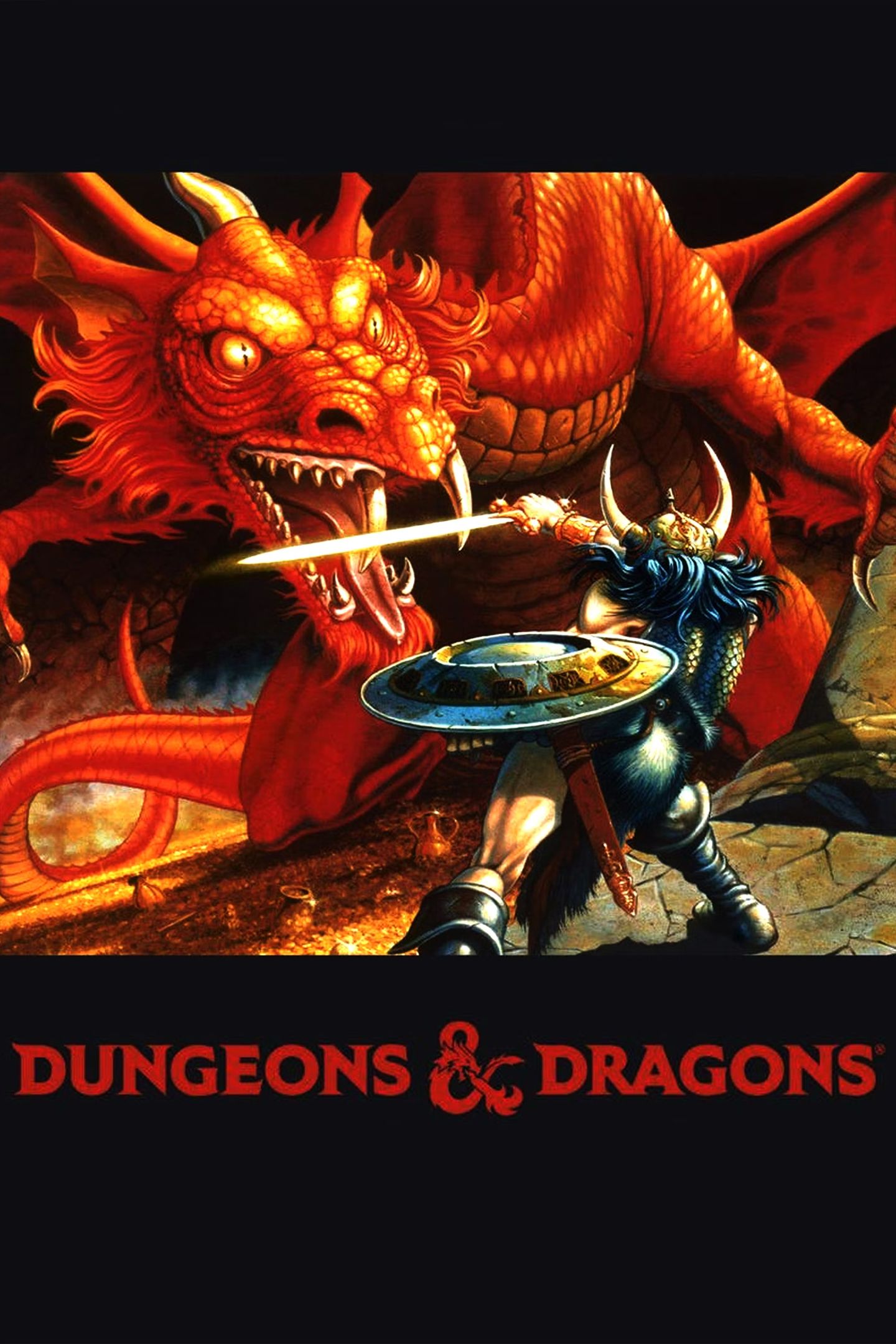

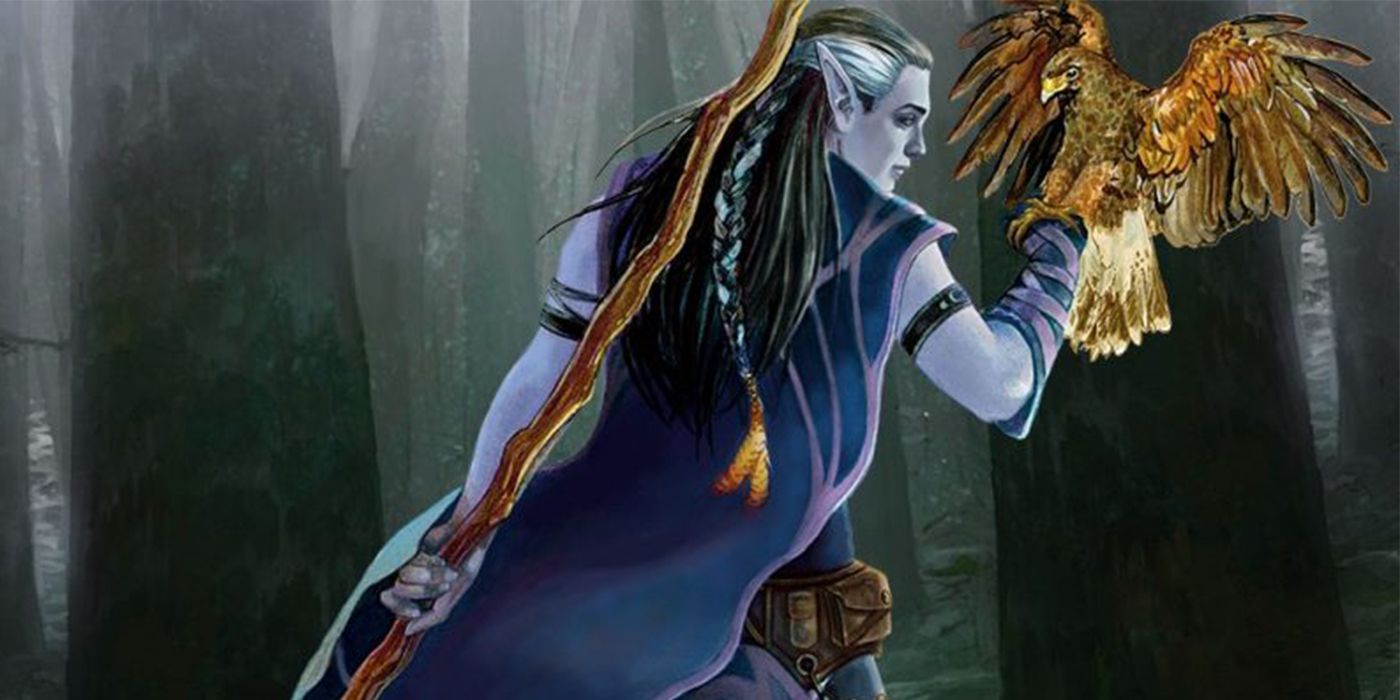
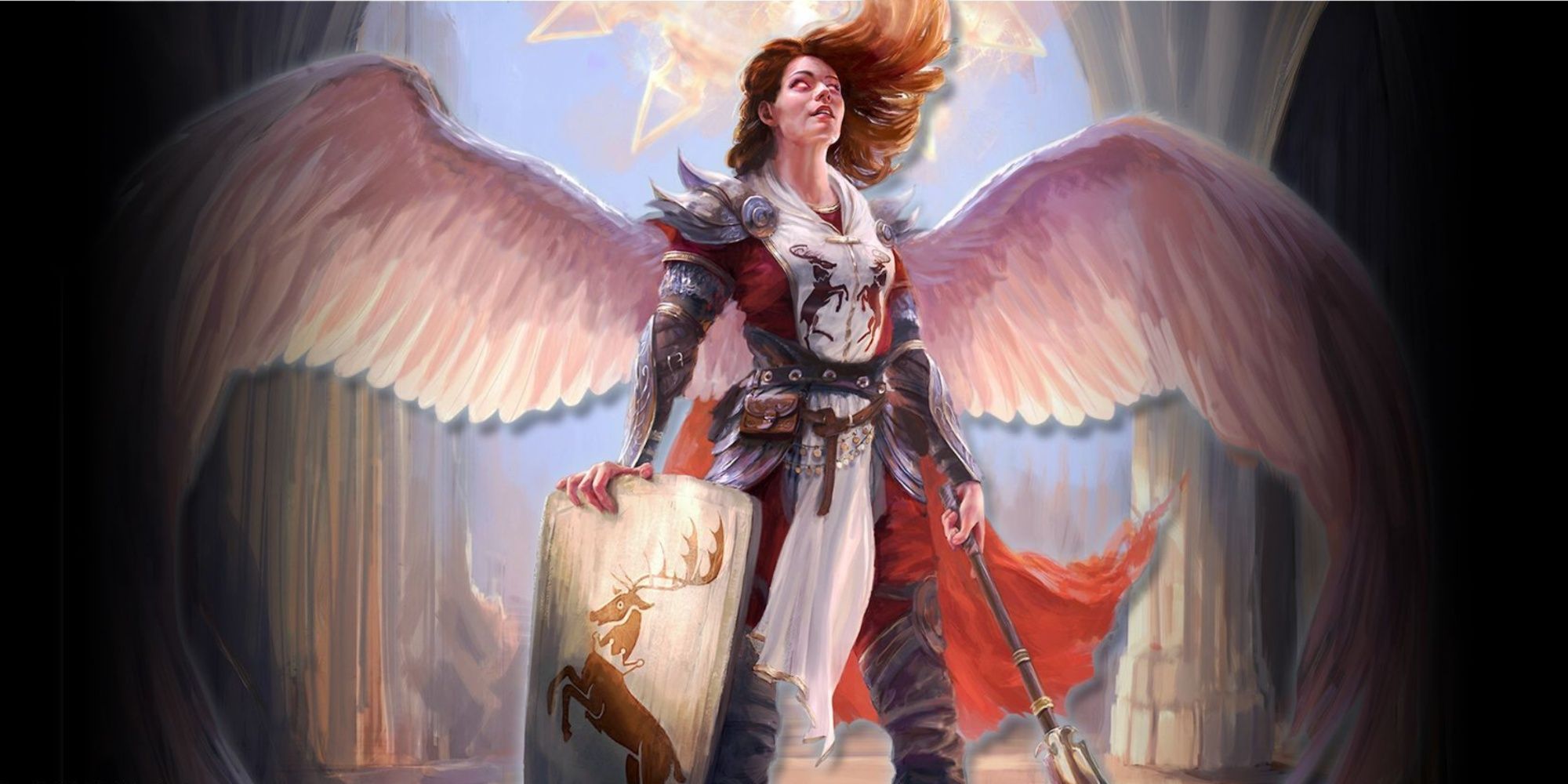
.jpg)
